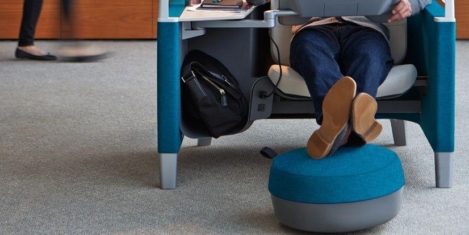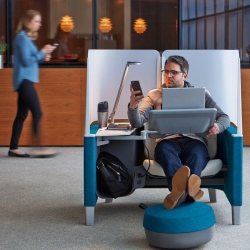To provide the best experiences, we use technologies like cookies to store and/or access device information. Consenting to these technologies will allow us to process data such as browsing behaviour or unique IDs on this site. Not consenting or withdrawing consent, may adversely affect certain features and functions.
The technical storage or access is strictly necessary for the legitimate purpose of enabling the use of a specific service explicitly requested by the subscriber or user, or for the sole purpose of carrying out the transmission of a communication over an electronic communications network.
The technical storage or access is necessary for the legitimate purpose of storing preferences that are not requested by the subscriber or user.
The technical storage or access that is used exclusively for statistical purposes.
The technical storage or access that is used exclusively for anonymous statistical purposes. Without a subpoena, voluntary compliance on the part of your Internet Service Provider, or additional records from a third party, information stored or retrieved for this purpose alone cannot usually be used to identify you.
The technical storage or access is required to create user profiles to send advertising, or to track the user on a website or across several websites for similar marketing purposes.
 This is the second of six special episodes of the Workplace Insight podcast in which we consider what are the most important facets of workplace wellbeing. The guest in this episode is Anna Davison who is head of workplace wellbeing at ukactive. Anna says her mission is to develop “the value of physical activity in all workplaces, delivering value to our members aligned to our wider mission of More People, More Active, More Often.” (more…)
This is the second of six special episodes of the Workplace Insight podcast in which we consider what are the most important facets of workplace wellbeing. The guest in this episode is Anna Davison who is head of workplace wellbeing at ukactive. Anna says her mission is to develop “the value of physical activity in all workplaces, delivering value to our members aligned to our wider mission of More People, More Active, More Often.” (more…)








 Getting on well with colleagues gives workers greater job satisfaction than having a good salary, new research has claimed. “
Getting on well with colleagues gives workers greater job satisfaction than having a good salary, new research has claimed. “


 Six in 10 people feel unable to express their true emotions in the workplace, new
Six in 10 people feel unable to express their true emotions in the workplace, new 
 One in six employees (17 percent) has been forced to take time out from their career due to stress or mental health pressures, a survey of 3,000 people has suggested. According to the research from
One in six employees (17 percent) has been forced to take time out from their career due to stress or mental health pressures, a survey of 3,000 people has suggested. According to the research from 


 Four in ten professionals admit they’re on the brink of
Four in ten professionals admit they’re on the brink of 














January 29, 2020
Don`t believe what you read about wellbeing, except this
by Mark Eltringham • Comment, Wellbeing, Workplace, Workplace design